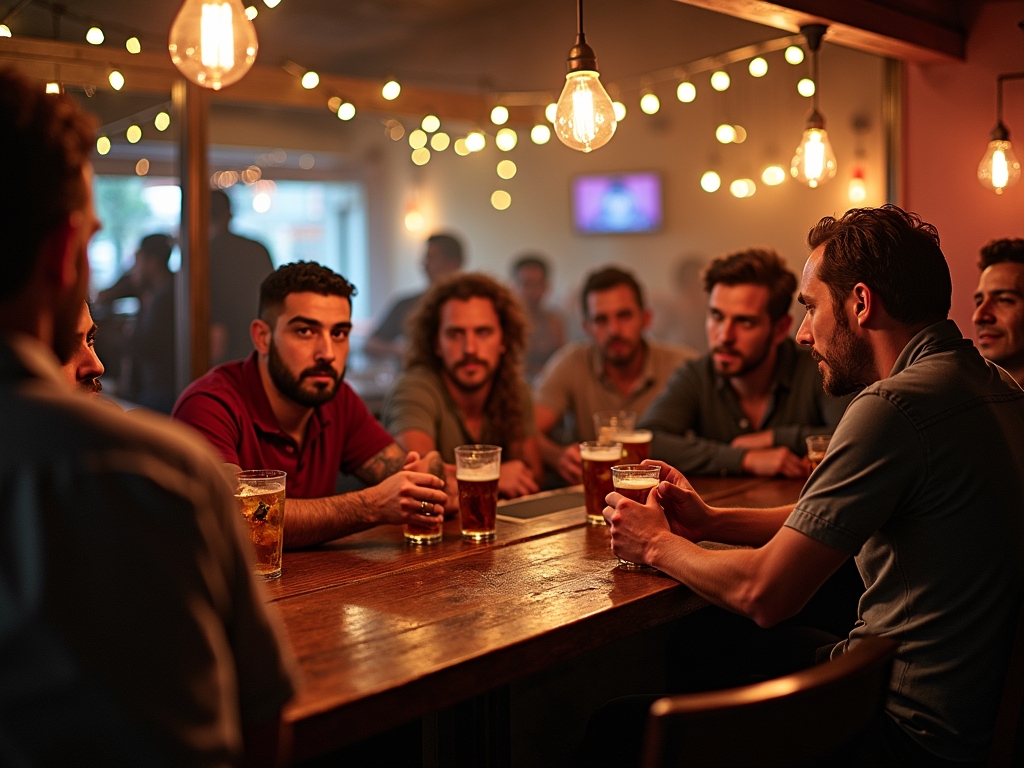The keto diet has garnered significant attention for its promise of rapid fat burning, improved mental clarity, and increased energy. Yet many people still wonder how alcohol fits into this picture. If you’ve ever searched for “alcohol keto” or wondered whether you can enjoy a drink without sabotaging your ketosis, this article is for you. We’ll dive deep into how alcohol impacts your body on a ketogenic diet, the best low-carb alcoholic beverage choices, and tips for making informed decisions to maintain your health and goals.
Navigating the World of Keto and Alcohol
In today’s fast-paced social and professional landscape, skipping a drink can sometimes feel like missing out on fun or networking opportunities. For many keto enthusiasts, the question remains: How do you reconcile the pleasure of a well-crafted cocktail with the strict dietary requirements of a ketogenic lifestyle? The short answer is yes, you can indulge occasionally if you follow the right guidelines.
The concept of “alcohol keto” is more than just a trendy search term—it represents a balanced approach to enjoying alcoholic beverages while adhering to a low-carb, high-fat lifestyle. In this article, we’ll explore the science behind the keto diet, the impact of alcohol on ketosis, and practical advice for integrating alcohol into your regimen without compromising your progress.
Understanding the Keto Diet and Its Metabolic Purpose
What is the Keto Diet?
The ketogenic diet focuses on restricting carbohydrate intake to force your body into a metabolic state known as ketosis. In ketosis, your body burns fat for fuel instead of carbohydrates. This shift in energy source supports weight loss, boosts mental clarity, and may even help manage certain health conditions.
Key components of the keto diet include:
- Low Carbohydrates: Typically, less than 50 grams per day.
- High Fats: Around 70-75% of your daily intake.
- Moderate Protein: About 20-25% of your daily intake.
When your body runs low on glucose from carbs, it starts breaking down fats into ketones, which become the energy source for many of your cells. For those following the “alcohol keto” approach, maintaining ketosis is vital, thus making it important to understand how external factors—like alcohol—interact with this metabolic state.
How Alcohol Is Metabolized on Keto
Alcohol, unlike carbohydrates, is processed by your liver but follows its own metabolic pathway. When you drink alcohol, your liver prioritizes its breakdown over fats and sugars. This means that any alcohol you consume temporarily halts the fat-burning process. For those striving to maintain ketosis, this is a significant point of concern since it might slow your progress—even if just for a short while.
The body’s reaction to alcohol differs widely depending on factors such as the type and amount of alcohol consumed, your overall diet, and individual metabolism. Understanding these variables is essential when integrating alcohol into your keto plan.

The Impact of Alcohol on Ketosis
How Alcohol Affects Ketone Production
When you ingest alcohol, your liver works diligently to metabolize it, which can interrupt ketone production. In the “alcohol keto” context, this temporary pause can lead to changes in your energy levels and potentially reduce the effectiveness of your low-carb state for several reasons:
- Prioritization of Alcohol Metabolism: The liver stops converting fats into ketones while it is busy breaking down alcohol.
- Drop in Energy Levels: You may notice a temporary dip in energy as your body shifts back to processing alcohol before returning to ketosis.
- Increased Cravings and Poor Judgement: Alcohol can trigger cravings for high-carb comfort foods, potentially derailing your diet even further.
This does not mean you need to completely forgo alcohol while following a keto diet. Instead, being mindful of the amount, type, and timing of your alcoholic drink is essential if you want to maintain your state of ketosis over the long term.
Psychological and Social Factors
Alcohol consumption is often interwoven with social activities, celebrations, and even stress relief. If you’re practicing keto, the desire to enjoy these social rituals remains real. Adopting an “alcohol keto” strategy means you can still enjoy your lifestyle while being conscious of the impact on your dietary goals. Whether it’s a weekend brunch, an office party, or a holiday dinner, being educated on your choices will empower you to make the best decisions without feeling like you’re sacrificing enjoyment.
Best Alcohol Choices for the Keto Diet
When considering which alcoholic beverages work best on a keto diet, remember that the fewer carbs, the better. Here are some popular low-carb and keto-friendly options:
Clear Spirits
Clear spirits like vodka, gin, tequila, and rum contain zero to very few carbohydrates when served straight or with calorie-free mixers. They are some of the best choices for anyone following an “alcohol keto” budget. Here’s what to keep in mind:
- Vodka and Gin: Both are virtually carb-free and can be mixed with soda water and a squeeze of lime for a refreshing drink.
- Tequila: Always opt for 100% agave tequila; while it is carb-free, be mindful of imported mixers that might add sugar.
Dry Wines
Dry wines tend to be lower in carbohydrates compared to their sweet counterparts. Both red and white dry wines can be enjoyed in moderation on a keto diet:
- Red Wine: Generally has about 3-4 grams of carbs per serving.
- White Wine: These usually have around 2-3 grams per serving, though you should avoid sweet wines if you’re sticking to strict carb limits.
Low-Carb Beers
The beer world is evolving with the demand for low-carb options. Low-carb beers are specifically brewed to reduce starch content while retaining flavor. They usually contain 2-3 grams of carbohydrates per serving. However, even these should be enjoyed in moderation as the combination of alcohol with keto can affect ketosis.
Avoid High-Carb Cocktails
Many cocktails are a trap for those on a keto diet. Drinks like margaritas, piña coladas, and sweetened martinis are often loaded with sugars and syrups. Opt for cocktails made with clear spirits and unsweetened mixers. Remember, the key is to opt for simplicity.

The “Alcohol Keto” Experience: Tips for Enjoying a Drink Without Sabotaging Your Diet
Managing your alcohol intake while staying keto requires some planning and mindfulness. Here are some actionable tips to ensure you can enjoy drinking occasions without compromising your ketosis:
1. Pre-plan Your Intake
Before heading out or pouring a drink at home, plan ahead. Estimate your daily carb intake and decide how many carbs you can spare for a drink. Being mindful of your overall dietary plan will help you stay on track.
2. Hydrate, Hydrate, Hydrate
Alcohol is a diuretic, meaning it can dehydrate you quickly. Always have a glass of water between drinks. Hydration not only minimizes hangovers but can also support overall metabolic function while you’re working through ketosis.
3. Choose Clean Mixers
Mixers can be the hidden source of carbs in your drink. Always opt for sugar-free or diet mixers, such as:
- Soda water
- Diet tonic water
- Fresh lemon or lime juice (in small amounts)
- Unsweetened iced tea
These carefully selected mixers can make a world of difference in keeping your carb count low.
4. Watch the Portion Sizes
Even though some alcoholic beverages have low carbohydrate values, controlling portion sizes is crucial. Moderation is key when following an “alcohol keto” approach. Overindulging in any type of alcohol can disrupt your balance, both metabolically and in terms of your calorie intake.
5. Time Your Drinking
If you know that drinking might impact your energy levels or focus the next day, plan your alcohol intake strategically. Some keto followers prefer to stick to alcohol consumption on days when they are less active or during social events, ensuring minimal impact on their exercise or productivity.
6. Monitor Your Body’s Reaction
Pay attention to how your body reacts to alcohol while staying in ketosis. Everyone’s metabolism is slightly different. Regular monitoring can help you understand the best drinking habits for your body, including any temporary setbacks in achieving optimal ketosis. By keeping a log, you’ll have a clear picture of what works for you.
How Alcohol Affects Ketosis and Your Weight Loss Goals
It’s important to understand that alcohol and the keto diet share a complex relationship. When you’re trying to achieve and maintain ketosis, consuming alcohol can slow down or temporarily halt fat-burning processes. Here’s what happens:
- Impact on Metabolism: Alcohol metabolism takes precedence over fat oxidation in the liver. This means that for a few hours after drinking, your body is focused on processing alcohol instead of burning fat.
- Caloric Considerations: Alcohol is calorie-dense. Even though these calories may not be stored as fat directly in a keto state, they add up and can displace healthier, nutrient-dense foods.
- Potential for Increased Cravings: Alcohol can reduce self-control and increase appetite, which may lead to consuming non-ketogenic, high-carb foods. This “slip” is one of the reasons why it’s vital to stick to your planned “alcohol keto” routine.
For many, the benefits of sustaining ketosis far outweigh the temporary enjoyment of an extra drink. However, if you make informed decisions and continue with caution, the occasional alcoholic beverage does not have to derail your overall progress.

Health Considerations and the Social Balance
The Social Aspect of Drinking on Keto
Social gatherings are often synonymous with alcohol. Whether it’s a weekend party or a celebratory dinner, learning to balance your commitment to the keto lifestyle with enjoying company is essential. The “alcohol keto” approach encourages:
- Mindful Drinking: Enjoy your drinks slowly, savoring the flavor without mindlessly consuming multiple cocktails.
- Social Balance: If you know a social event will lead to multiple rounds of drinking, plan your other meals around lower carb intake to balance out the day.
- Setting Realistic Goals: Accept that while a single indulgence may not be disastrous, frequent high-carb alcohol consumption might hinder your long-term goals.
Potential Risks
It’s important to note that combining alcohol with a restrictive diet can cause some unique issues:
- Increased Sensitivity: Many keto dieters report that their tolerance for alcohol decreases when they are in ketosis. This means you might feel the effects of alcohol faster than you would ordinarily.
- Liver Stress: Since both alcohol and ketosis rely heavily on your liver’s metabolic pathways, be mindful of overstressing this vital organ. Moderation is key.
- Nutrient Deficiencies: If not planned carefully, alcohol can displace nutrient-dense foods, leading to deficiencies. Ensure that your diet includes plenty of vitamins, minerals, and fiber from non-alcoholic sources.
Crafting Your Own “Alcohol Keto” Strategies for Long-Term Success
If you’re looking to harmonize a social life with the goal of maintaining ketosis, here are some strategies to help you succeed:
Experiment with Low-Carb Cocktails
There are plenty of recipes available for cocktails that are specifically designed to be low in carbs. Look for recipes using fresh herbs, berries, or spices that add flavor without extra sugars. Some ideas include:
- Cucumber Gin Fizz: Made with gin, fresh cucumber, soda water, and a squeeze of lime.
- Keto Margarita: Crafted with tequila, fresh lime juice, a splash of orange extract, and diet sweetener.
- Spiked Iced Tea: Brewed unsweetened tea mixed with a shot of vodka and a twist of lemon.
Incorporate “Alcohol Keto” Days Strategically
Not every day has to include alcohol. Designate specific social days where you allow for a drink or two. This helps maintain discipline with your diet on most days while still letting you enjoy special occasions. The key here is balance and ensuring your overall weekly carbohydrate intake remains within your goals.
Listen to Your Body
The most important factor in any diet is how your body responds to changes. If you notice that alcohol consistently affects your energy levels, disrupts your sleep, or triggers cravings, it might be time to adjust your “alcohol keto” strategy. Flexibility and self-awareness are essential keys to long-term success.
Practical Tips for Staying on Track During Social Events
Social events can be a minefield for those trying to adhere to a strict dietary regimen like keto. Here are some practical tips to help you navigate parties and dinners without compromising your diet:
- Eat Before You Drink: Have a nutritious, filling meal before heading out. This helps stabilize your blood sugar and minimizes the impact of alcohol.
- Plan Your Drink Orders: Decide in advance which low-carb drink you’ll order. Avoid impulsive decisions which may lead to higher-carb options.
- Communicate Your Goals: Often, sharing that you’re following a low-carb or keto lifestyle with your friends or family can lead to supportive suggestions for your order.
- Stick to Water: Alternate alcoholic beverages with water. This not only reduces total alcohol consumption but helps mitigate dehydration.
- Keep Snacks Keto-Friendly: If you expect food to be served at an event, offer to bring a keto-friendly dish. This way, you ensure there is an option that fits your dietary needs.
Addressing Common Myths About Alcohol and Keto
There are several myths circulating about alcohol consumption and keto. Let’s debunk a few common misconceptions:
- Myth 1: “Any Amount of Alcohol Will Kick You Out of Ketosis.”
- Reality: While alcohol does temporarily slow the fat-burning process, moderate consumption on occasion won’t permanently affect ketosis—in most cases, it’s a short-term interruption.
- Myth 2: “Low-Carb Means No-Carb, So All Alcohol Has to Be Avoided.”
- Reality: Many alcoholic beverages have very low carb counts, especially when consumed neat or with non-sugary mixers. The “alcohol keto” approach is about balancing choices rather than strict elimination.
- Myth 3: “Drinking on Keto Leads to Rapid Weight Gain.”
- Reality: Like all things, moderation is crucial. Excessive alcohol can add extra calories that may affect your progress, but occasional, mindful drinking need not derail your goals.
Making It Work for You: Personalizing Your Alcohol Keto Approach
Everyone’s body and lifestyle are unique. What works for one person may not work as effectively for another. The “alcohol keto” journey is about fine-tuning your habits to match your health and social needs. Here are some personalization tips:
- Track Your Progress: Keeping a journal or using an app to log your meals and drinks can help you understand how alcohol affects your ketosis on a personal level.
- Set Clear Limits: Decide ahead of time how many drinks you’ll allow yourself on any given occasion, and stick to that number.
- Experiment and Adjust: If you notice that certain types of drinks leave you feeling off-balance, experiment with different options until you find one that aligns with your routine.
- Consult a Professional: When in doubt, speak with a nutritionist or healthcare provider who understands the keto lifestyle for personalized advice.

Final Thoughts: Embracing an Alcohol Keto Lifestyle
The integration of alcohol into the keto diet can be managed successfully with planning, moderation, and mindfulness. By understanding the science behind how alcohol interacts with ketosis, choosing low-carb drinks, and implementing practical tips for maintaining balance, you can enjoy social events without compromising your dietary goals.
Summary of Key Points:
- The Keto Diet: Emphasizes high fat, moderate protein, and very low carbohydrates, leading to a state of ketosis.
- Alcohol Metabolism: Temporarily shifts the liver’s focus from fat burning to processing alcohol, momentarily halting ketone production.
- Low-Carb Options: Choose from clear spirits, dry wines, and low-carb beers while avoiding high-sugar mixers and cocktails.
- Practical Strategies: Plan your drinking, hydrate well, use clean mixers, and monitor body reactions to maintain your “alcohol keto” balance.
- Personalization: Tailor your approach by tracking progress, setting limits, and consulting professionals to seamlessly integrate alcohol into your lifestyle without derailing your goals.
By adopting an informed and disciplined “alcohol keto” strategy, you can strike a balance between enjoying a drink on a night out and reaping the benefits of the ketogenic diet. Responsible alcohol consumption, when paired with your strong keto foundation, can contribute to a vibrant social life without forcing you to compromise on your health goals.
As you continue your keto journey, remember that every choice you make should support your well-being. Use this guide as a framework to explore how best to incorporate alcohol responsibly and to maintain the delicate balance that ketosis requires. A mindful approach to both your meals and your drinks ensures that you fully benefit from the keto lifestyle while still enjoying the social pleasures of life.
Cheers to staying healthy, making informed choices, and embracing a balanced lifestyle that includes an occasional, well-deserved, low-carb drink!
Happy sipping, and here’s to your continued health and success on your keto journey

Leave a Reply